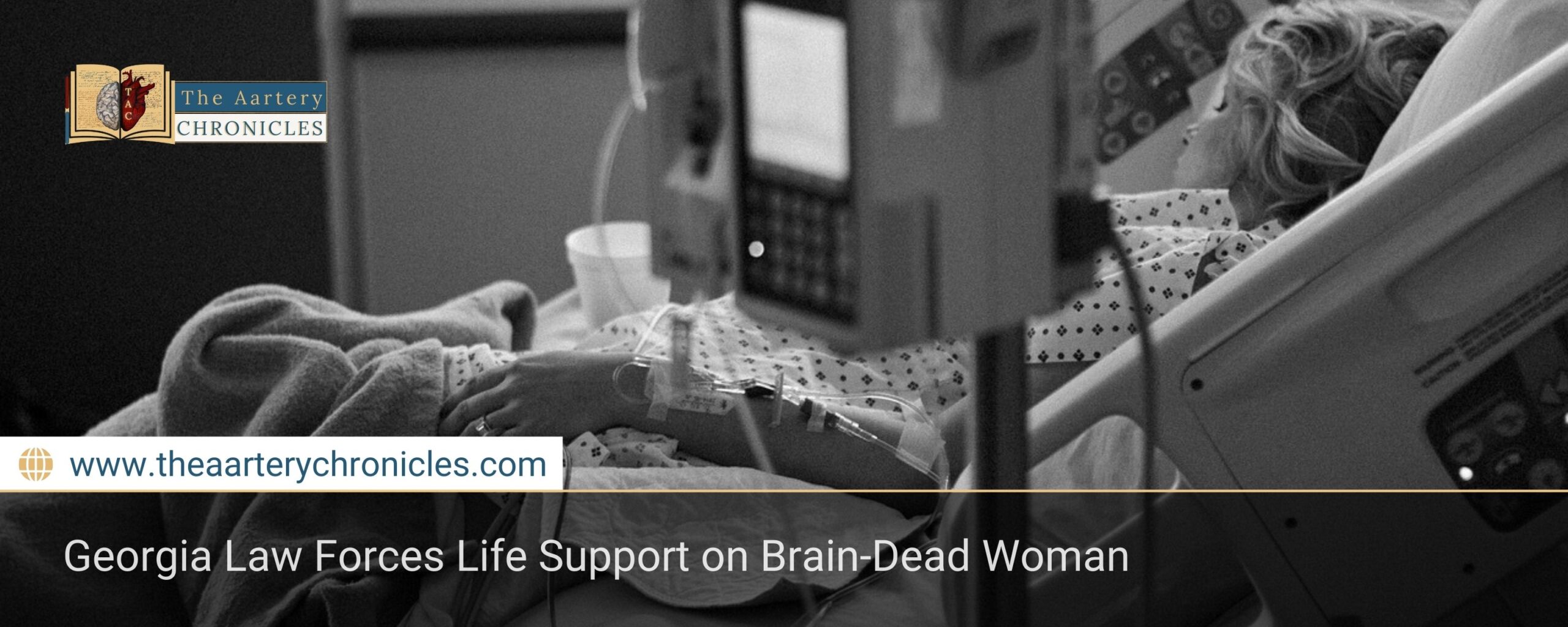

Georgia Law Forces Life Support on Brain-Dead Woman
A heartbreaking case in Georgia has brought attention to the impact of strict abortion laws on medical decisions involving pregnant women in critical conditions.
Pregnant Nurse Declared Brain Dead
In February, Adriana Smith, a 30-year-old pregnant nurse from Atlanta, started experiencing severe headaches. She was nine weeks pregnant at the time. According to her mother, April Newkirk, Adriana went to the hospital, but doctors dismissed her symptoms and did not order essential tests like a CT scan.
The next day, Adriana’s boyfriend found her struggling to breathe in her sleep. She was rushed back to the hospital, where doctors finally performed a CT scan and discovered multiple blood clots in her brain. Unfortunately, it was too late—Adriana was declared brain dead.
LIFE Act Prevents Ending Pregnancy Despite Brain Death
Under Georgia’s Living Infants Fairness and Equality (LIFE) Act, passed in 2019 and enforced since 2022, abortion is banned once a fetal heartbeat is detected, typically around six weeks of pregnancy. The law allows few exceptions: cases of rape, incest, severe fetal abnormalities, or if the mother’s life is in immediate danger.
In Adriana’s case, doctors told the family that despite her brain death, the situation did not meet the law’s definition of a “medical emergency.” As a result, they are legally required to keep her on life support to continue the pregnancy, even though she has no chance of recovery.
A Family Left Powerless and Traumatised
Adriana has been kept alive by machines for over 90 days, and doctors plan to continue this until the pregnancy reaches at least 32 weeks, about 11 more weeks from now, so the baby might survive outside the womb.
Her mother describes the experience as devastating and emotionally unbearable. “It’s torture. Her body is still breathing, but she’s not there,” Newkirk said. Her grandson, Adriana’s young son, visits his mother and still believes she is simply sleeping.
Fears Over Baby’s Health and Future
Medical experts have warned the family that the baby may face serious health complications due to the circumstances. Possible outcomes include blindness, developmental delays, or the baby not surviving at all after birth.
Newkirk says the family feels stripped of their rights to make decisions about their daughter and unborn grandchild. “This should have been our decision,” she said. “Now we don’t know what kind of life the baby will have, and we’ll be the ones raising him.”
Conclusion
The LIFE Act has been controversial since it went into effect. Supporters argue it protects unborn children, but critics say cases like Adriana’s show how the law can lead to extreme and painful situations for families.
Adriana’s family hopes that sharing their story will raise awareness about the real-life consequences of restrictive abortion laws and spark conversations about who should make medical decisions in such critical cases.
Source: Inputs from various media Sources

Priya Bairagi
Reviewed by Dr Aarti Nehra (MBBS, MMST)
I’m a pharmacist with a strong background in health sciences. I hold a BSc from Delhi University and a pharmacy degree from PDM University. I write articles and daily health news while interviewing doctors to bring you the latest insights. In my free time, you’ll find me at the gym or lost in a sci-fi novel.








